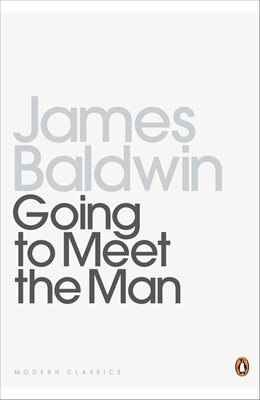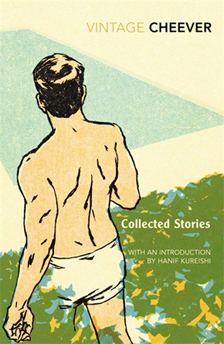Rereadability unbound
by Rivka Galchen I’d like to think there’s something more essential about the short story than just its being, well, short. Are short stories inherently tidier, messier, more dramatic, voicier, paradoxically slower, better with beer and pretzels than neighboring forms? We could adjectival-phrase away for days on this, following up with maybe yesses and maybe nos, but I suspect we would find ourselves returning to ‘short’. When a fiction is short you can read it many, many, many times. And that changes everything. It changes the pressure on the language, it changes the pressure on the work to read differently each time through. Sure, we might read a novel that we really love twice, maybe three times, maybe there’s even a few novels that we might read ten times, and then there are extremes. But short stories’ shortness ensures a common enough fate of rereading. There are stories on this list that I’ve read near on forty times, and that is part of their special magic, that they seem able to replenish themselves without a word changing. It’s a legible impossibility, it’s strange, but there it is. Some of these stories have surreal elements, some of these stories have high style, some of these stories are familiar as kitchens. But they’re all short. And inexhaustible.
I’d like to think there’s something more essential about the short story than just its being, well, short. Are short stories inherently tidier, messier, more dramatic, voicier, paradoxically slower, better with beer and pretzels than neighboring forms? We could adjectival-phrase away for days on this, following up with maybe yesses and maybe nos, but I suspect we would find ourselves returning to ‘short’. When a fiction is short you can read it many, many, many times. And that changes everything. It changes the pressure on the language, it changes the pressure on the work to read differently each time through. Sure, we might read a novel that we really love twice, maybe three times, maybe there’s even a few novels that we might read ten times, and then there are extremes. But short stories’ shortness ensures a common enough fate of rereading. There are stories on this list that I’ve read near on forty times, and that is part of their special magic, that they seem able to replenish themselves without a word changing. It’s a legible impossibility, it’s strange, but there it is. Some of these stories have surreal elements, some of these stories have high style, some of these stories are familiar as kitchens. But they’re all short. And inexhaustible.
‘Sonny’s Blues’ by James Baldwin
This is probably the most atomically dense story I have ever come across about family love. Not that it’s really ‘about’ family love – I think most people pushed into giving it an aboutness might say quite fairly that it’s about art – but the line of the story is the narrator trying to understand his brother Sonny, who in the narrator’s mind seems to make one bad decision after another.
‘Tlon, Uqbar and Orbis Tertius’ by Jorge Luis Borges
This is a wildly imaginative story about a whole world stumbled across through a supererogatory entry on a land called Uqbar in a rare 1902 edition of Anglo-American Cyclopaedia. Published in 1940, it’s also impossible not to see it – at least in part, and on certain days – as an ingenious fable.
‘Emergency’ by Denis Johnson
Two often drugged men are working the night shift at an emergency room, and a man walks in with a knife in his eyes, and a newborn litter of bunnies is found by the side of the road, and a drive-in movie theater appears like a transcendent graveyard, and somehow all this in not very many words makes for one of the very best stories by one of the very best writers.
‘Bartleby, the Scrivener’ by Herman Melville
I have read this story somewhere in the neighbourhood of 150 times; each time it’s new.
 ‘Afterward’ by Edith Wharton
‘Afterward’ by Edith Wharton
The best ghost story I can think of, and at the same time one of the best stories about money. Its only peer in these parallels is the great Henry James.
‘Plain Pleasures’ by Jane Bowles
Bowles writes the most unexpected and true dialogue, and this story is one of the most distilled of the perfectly frustrating psychologies she explores.
‘The Jewels of the Cabots’ by John Cheever
One usually first arrives to Cheever’s stories via ‘The Enormous Radio’ or ‘The Swimmer’, but this story, the last he ever completed so far as I know, is the one I love the most of all. I also especially admire his stories ‘The Angel of the Bridge’, ‘An Educated American Woman’, ‘A Miscellany of Characters That Will Not Appear’ and ‘The Ocean’.
‘Revelation’ by Flannery O’Connor
No one can write about our evil or our god-haunted world as well as Flannery O’Connor.
The Driver’s Seat by Muriel Spark
This is technically a very slim novel, and not a short story, but Spark’s prose is all about the compression we associate with the short form, and it also seems wrong to make up a list of great anythings without including her.
‘Safari’ by Jennifer Egan
An excruciatingly accurate flash-forward in time is part of the genius of this story’s perfect depiction of the structures a young modern woman moves among; also there is literally a lion who pounces somewhere in this story, which is so great.
 Rivka Galchen is a Canadian-American writer who received her MD from Mount Sinai School of Medicine. Her fiction and essays have appeared in The Believer, Harper’s, The New Yorker, Scientific American and The New York Times. Her debut novel Atmospheric Disturbances and new story collection American Innovations are published by Fourth Estate. Read more.
Rivka Galchen is a Canadian-American writer who received her MD from Mount Sinai School of Medicine. Her fiction and essays have appeared in The Believer, Harper’s, The New Yorker, Scientific American and The New York Times. Her debut novel Atmospheric Disturbances and new story collection American Innovations are published by Fourth Estate. Read more.
Author portrait © Sandy Tait

